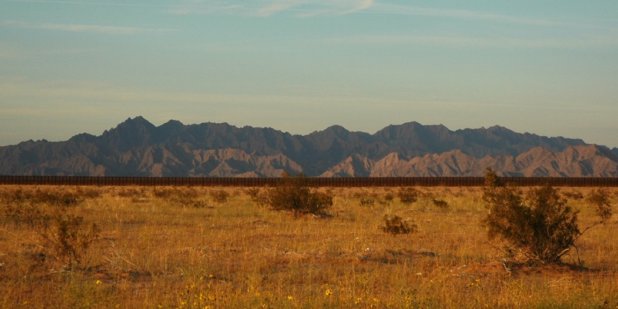- About
- Topics
- Story
- In-Depth
- Picks
- Opinion
- News
- Donate
- Signup for our newsletterOur Editors' Best Picks.Send
Read, Debate: Engage.
It’s impossible to talk about different factors for migration without taking into account the climate.
fairplanet spoke with Adrien Detges, PhD student at the Freie Universitaet, Berlin.
People migrate from their homes for many reasons; through your work and experience, have you found any evidence that suggests people migrate because of climate change? If so, please explain; if not, are changes in climate felt indirectly? E.G. failed crops etc.
Adrien DetgesIt is hard to really pinpoint climate change/ climate change-related problems as a cause of migration. Climate Change is frequently mentioned in cases of displacements and altered migratory routes of pastoralists, but it’s almost always accompanied by insecurity/conflict and the loss of livelihoods due to diverse factors (climate-induced shortages of water and land, but also human-induced shortages through pollution, land degradation etc.). So it’s really hard to disentangle all these things in a given situation.
Also, the distinction is often not entirely clear between seasonal movements as a standard coping strategy of communities facing erratic weather conditions (e.g. pastoralists in East Africa) and the way in which these movements change over longer periods, say 15-20 years, as a result of progressive Climate Change.
More generally, the question whether or not Climate Change can be considered a source of migration hotly is debated in the scientific literature.
Yes, there is a range of indicators people rely on to assess changes in the climate (even in absence of scientifically collected data), such as the timing and intensity of rains, i.e. when, over a period of several years, rains tend to come later and/or in abrupt instances of heavy rainfall. Other indicators include changes of shorelines for lakes or increased frequency of disasters. However, the assessment of all these things requires observation over longer periods of time. So, failed crops in one year are not automatically a sign of a changing climate, but if crops tend to repeatedly fail this might be an indicator.
When people migrate from one area to another, how is that migration facilitated? Do people simply leave, or are there networks (informal/ formal) who can help? E.G. organisations etc.
I can only respond with regard to pastoralists in the Sahel and East Africa, but yes, networks (both formal and informal) are crucial. Pastoralist communities rely on a set of informal treaties and grazing/ water use agreements with other communities to prepare herd movements. In cases, where a community wants to permanently alter its patterns of seasonal migration, perhaps in response to gradual Climate Change, it is usually very much concerned about its relations with the host communities and local officials.
Herds are split and smaller herds sent as scouts to bargain terms for the arrival of the main herd. Such interactions can be repeated during several years before conditions are favourable for the arrival of the main herd and individual herders engage in a multitude of personal and business relationships over that time, which eventually facilitate a permanent relocation.
But, pastoralists also need to have a say in local politics through pastoral associations and ties to representatives in local councils and national parliaments to navigate different and sometimes conflicting layers of jurisdiction.
There are different regional organisations that advocate pastoralist mobility as a way to adapt to Climate Change. This is however a sensitive issue as pastoral mobility often stands in opposition to large scale development projects (commercial ranches, irrigated agriculture etc.), transgresses international borders and involves communities, which are often marginalized.
